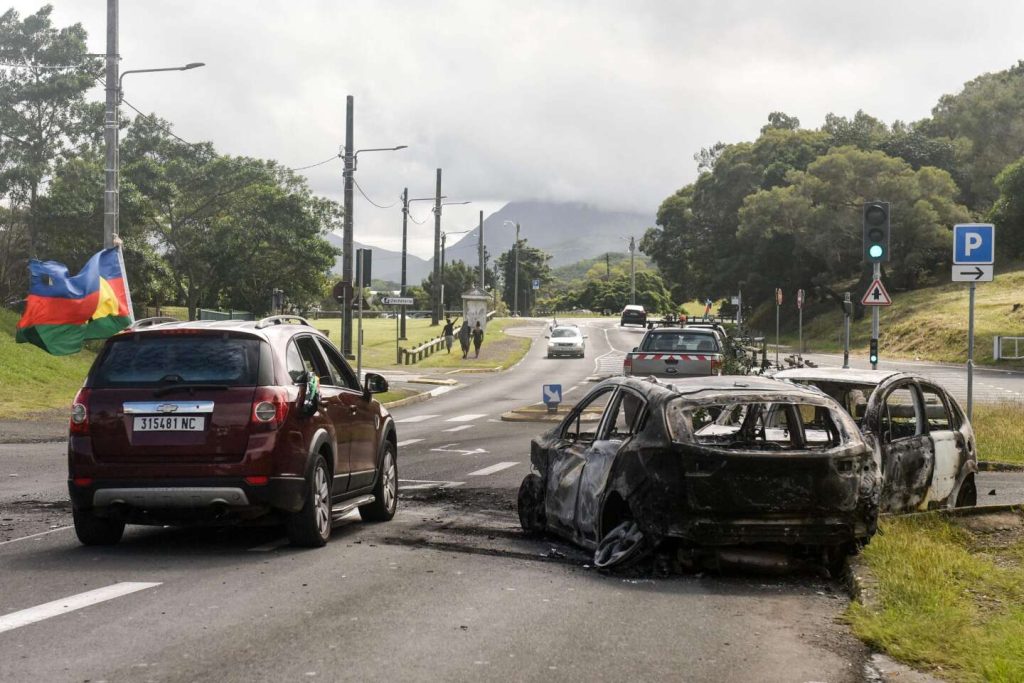In Nouméa, New Caledonia, on May 13th, violent clashes erupted between young independence activists and law enforcement. The streets of the typically peaceful capital were filled with chaos as Molotov cocktails and stones were met with Flash-Balls, grenades, and armored vehicles. The violence spread to various neighborhoods, resulting in multiple stores being set on fire, car dealerships destroyed, and a beverage distribution plant completely engulfed in flames. Even upscale areas were not spared, as masked protesters took over a central roundabout before being dispersed by mobile gendarmes.
Despite warnings from the high commissioner, Louis Le Franc, the situation continued to escalate. The youth in the nearby Saint-Louis tribe had fired at gendarmes earlier in the day, prompting Le Franc to authorize the GIGN to respond in self-defense. This decision came after a mutiny at the overcrowded Camp-Est prison, where three guards were taken hostage, and roads on the mainland were blocked. The airport was also forced to close due to the threat of further unrest.
The day had begun peacefully, with independence activists gathering to protest a constitutional reform regarding electoral eligibility. The mobilization, organized by the FLNKS activist group, had been planned for weeks and saw a significant turnout. This demonstration marked a rare show of unity among the independence movement, reminiscent of the turmoil that plagued the archipelago in the 1980s. However, the initial calm quickly gave way to violence, underscoring the deep-seated tensions that still exist in New Caledonia.
The clashes in Nouméa serve as a stark reminder of the unresolved issues surrounding New Caledonia’s political landscape. The relationship between the indigenous Kanak people and the French government remains complex, with historical grievances and calls for self-determination fueling ongoing tensions. The latest unrest represents a challenge for the authorities to address underlying grievances and prevent further violence from erupting.
As the night wore on, reports of injuries and damage continued to circulate, painting a grim picture of the situation in Nouméa. With dozens of gendarmes wounded and significant property destruction, the aftermath of the clashes highlighted the need for dialogue and reconciliation between opposing factions. The road to peace and stability in New Caledonia remains fraught with obstacles, requiring a concerted effort from all parties involved to navigate the complex issues at hand.
The events in Nouméa on May 13th serve as a poignant reminder of the fragility of peace in New Caledonia. The flare-up of violence, fueled by longstanding grievances and political tensions, underscores the need for a comprehensive and inclusive approach to addressing the root causes of conflict. Moving forward, all stakeholders must work together towards genuine dialogue and reconciliation to ensure a sustainable and peaceful future for the people of New Caledonia.


